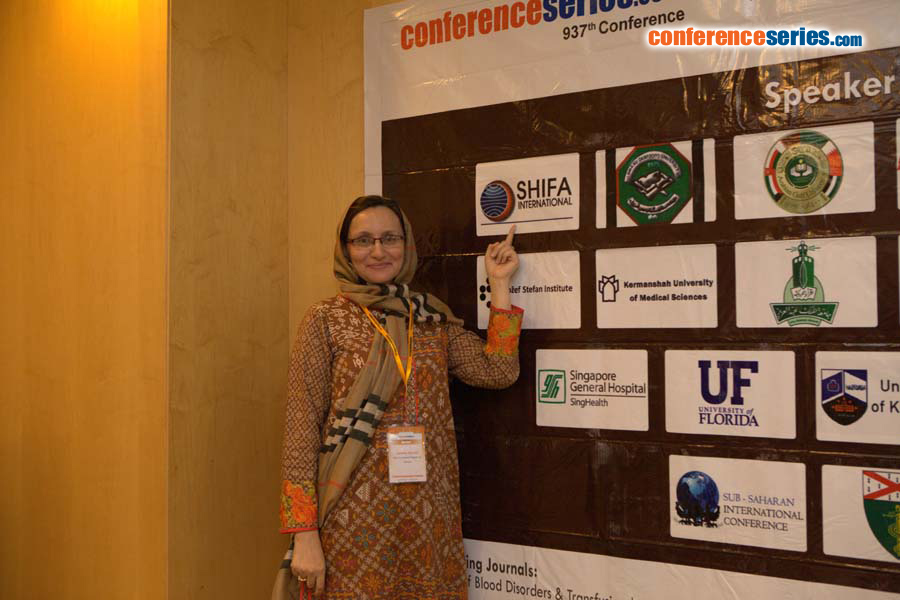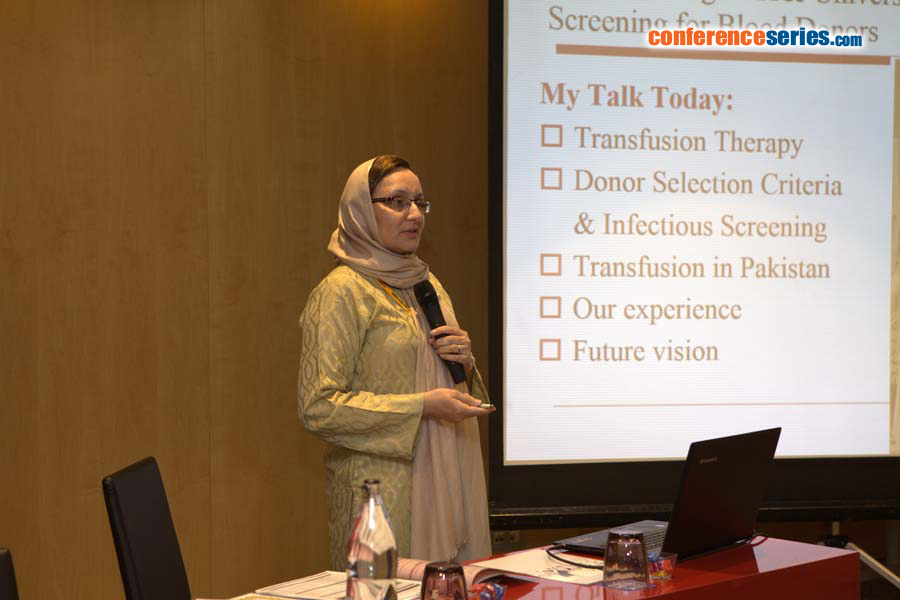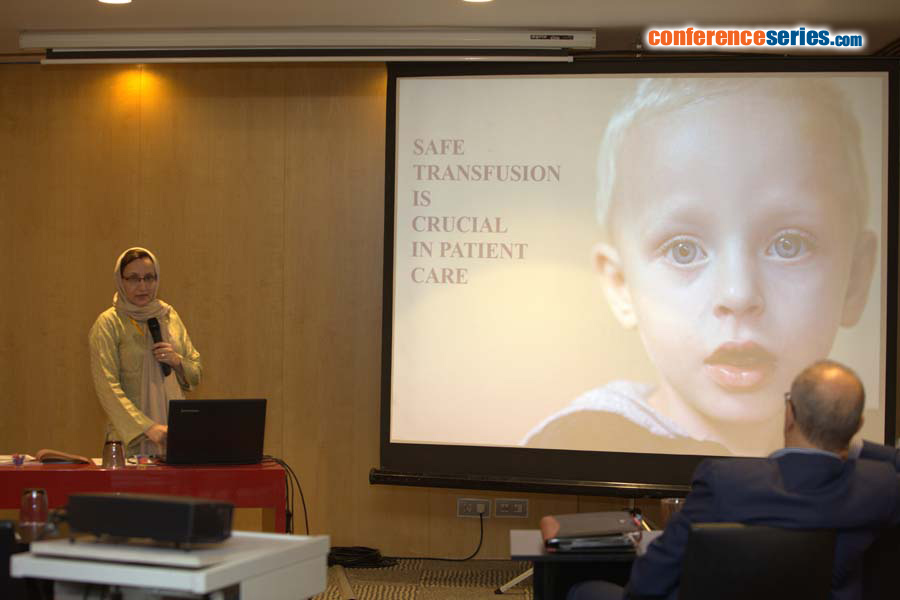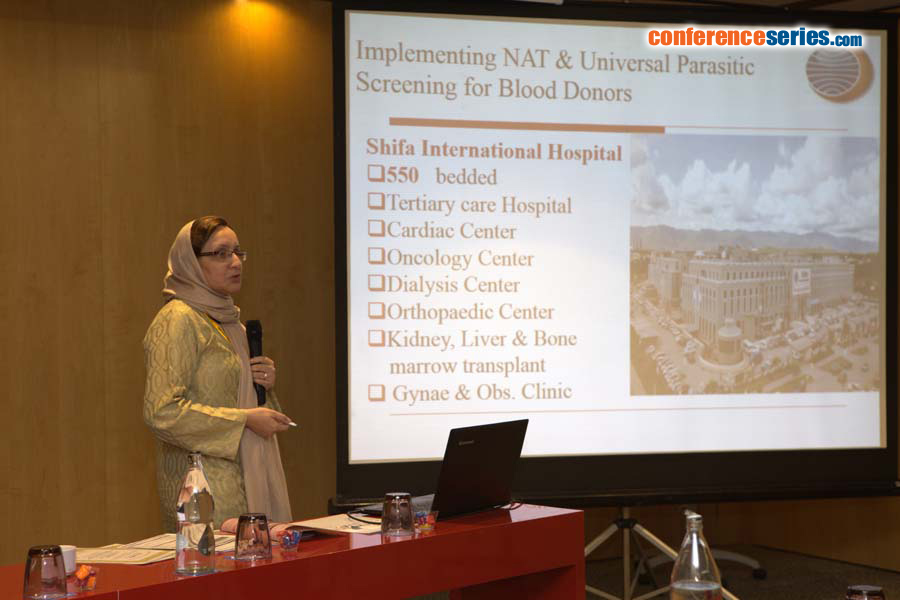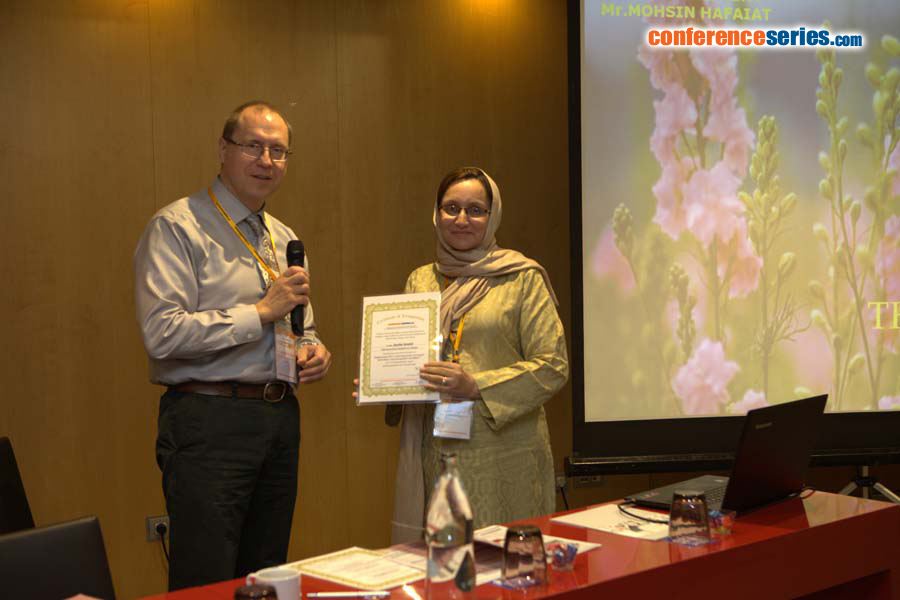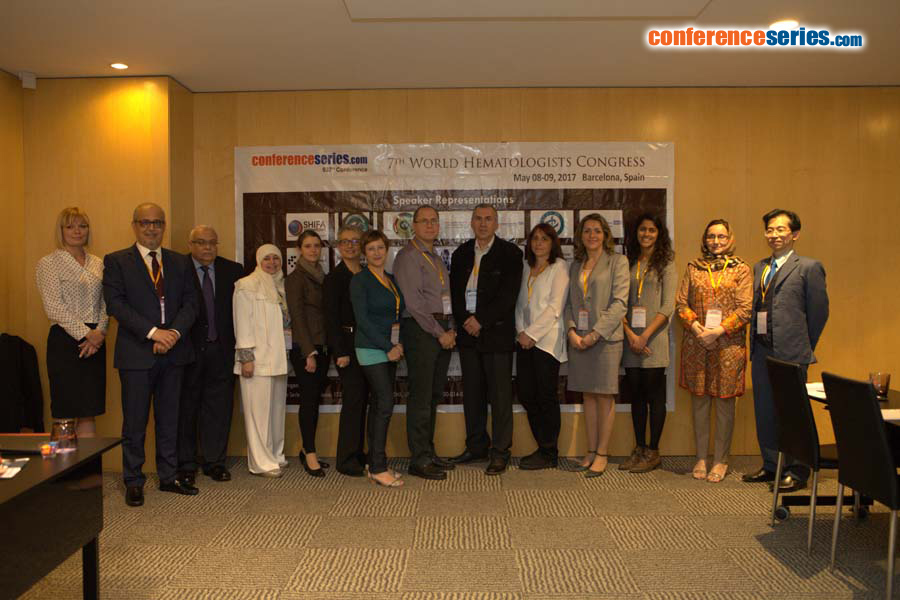
Ayesha Junaid
Shifa International Hospital, Pakistan
Title: Implementing NAT & universal parasitic screening for blood donors: Maximizing donor surveillance
Biography
Biography: Ayesha Junaid
Abstract
Introduction: Selection of an uninfected donor is of extreme importance in enhancing transfusion safety. Presence of week’s long window period of fatal viral infections in serologically screened donors provides an ever existing possibility of fatal disease transmission through transfusion. We introduced nucleic acid amplification testing for viral screening and also scanned donors for two common endemic parasitic infections, Plasmodium and Treponema pallidum. Our institute provides 500 bedded tertiary care facilities with around 15,000 blood donors walking in annually to meet transfusion demand for a varied mix of oncology, dialysis, obstetric, pediatric, surgical and critical care patients. Malaria screening was added as our country falls in malaria endemic zone, while syphilis screening is lately added to prevent STD transmission.
Aim: Aim of this study is to minimize transfusion transmissibility of viral and parasitic infections to critical in-patients.
Methods: We tested 6,411 sero-negative donors (out of 6588 total donors) on NAT for HBV, HCV & HIV viruses in a period of six months (July-December 2015) using a minipool of six donors. Malaria screening was performed on 6588 donors using rapid testing based on species specific plasmodium LDH detection in human blood. 296 donor samples were screened for syphilis using qualitative electrochemiluminescence immunoassay.
Results: Five donors were found NAT positive for HBV out of a total of 6,411, saving 20 possible HBV transmissions through transfusion. Two donors out of 6588 were positive for Plasmodium vivax. Two donors out of 296 were positive for syphilis. Improved screening saved 36 possible infectious disease transmissions through transfusion over a period of six months.
Conclusion: Donor screening plays a vital role in improving transfusion practice. Hemovigilance activity upgrading and standardizing screening practices should be part of our vision to prevent infectious disease spread. Our next mission is to screen donors for dengue infection as the disease has lately shown marked increase in incidence in our country.
Speaker Presentations
Speaker PPTs Click Here

